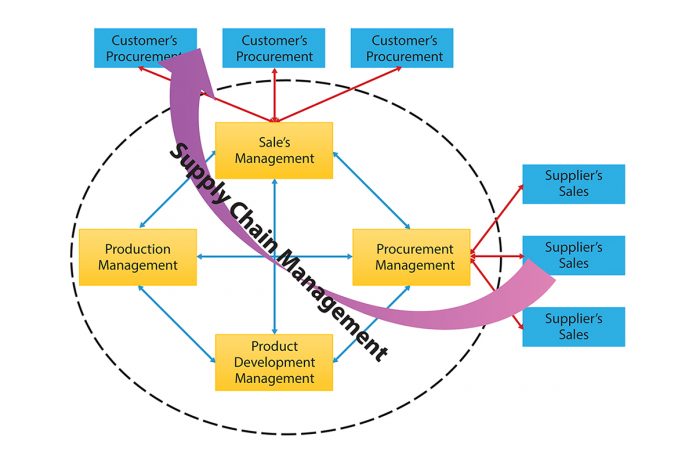The Business Competence and Process Management RDI-group outline how industrial management and engineering degrees are valuable to businesses in Europe
Engineering and economics combined into one very specific profession are typically referred to as industrial management and engineering (IME). This article focuses specifically on the engineering degree in industrial management. There is a huge difference between a business degree and an engineering degree in industrial management. Two very similar points of view for an IME degree are found from Germany (Wirtschaftingeniur) and from Finland (Tuotantotalous). These degrees are very different to pure engineering degrees or pure business/economic degrees. IME graduates are engineers who have business management, leadership and communication studies integrated to their engineering studies. A pure engineering degree includes very few business and management studies, just as a pure business or economic studies include very few engineering or natural sciences studies if any at all.
Sales, procurement and production are key
When simplifying, we found that sales, procurement, production and product development are the core operations in every business or public organisation. Without sales, there is no business done or no value created in a public organisation. All organisations need customers, and sales should be recognised to be the main operation when providing products or services to a customer. Production should be understood so that all organisations have it. From an IME point of view, kindergartens, shipyards, a logistics company, machine workshops or hospitals all perform some sort of production. They produce value for the customers. No single company or organisation can produce value from nothing. Materials, energy, tools, machines, different accessories, subcontractors and suppliers are all needed in their production. Therefore all organisations need procurement. All organisations provide products or services. They are developed and they need to be further developed to stay competitive in future markets – to do this organisation need product development. When scrutinising an organisation’s situation and environment more holistically, supply chains and value networks should be understood. These aspects and operations are in the core of IME. Therefore, all of these subjects should be covered in IME education.
Figure 1 illustrates crucial connections between these core operations: Sales and production have to synchronise their operations; when the orders can be delivered; and which batches are the most profitable are discussed, to name a few. Sales and product development are communicating all the time, as sales are giving market information to product development and the latter one is providing product knowledge and technical support to sales. In many cases the cost of the product or service consists of 60-80% outsourced materials and other purchased items or services, it is clear that sales and procurement should coordinate their operations tightly.
Figure 1 also shows that production and product development should cooperate constantly in order to keep developed products and services feasible to produce, and lead times as short as possible. Product development is also communication with procurement in order to keep products cost effective and ensuring short lead times. Product development is also probably the most crucial operation when thinking about the cost of the final product or service. Some studies have shown that 70% of the total cost is set in product development. As procurement has to ensure that production can run smoothly, without shortages from subcontractors or materials, these 2 operations should also coordinate their activities. As in many cases, the majority of costs are generated in purchasing activities, procurement has a vital role in keeping organisation costs down. Aspects discussed above show that most of the efforts in IME education should be set to competencies including sales, procurement, production and product development.
At the Turku University of Applied Sciences, in the industrial management and engineering degree programme students have compulsory basic studies from all of the discussed subjects and they can choose 2 or 3 of these competence entities to study further. Every student also chooses which technical engineering they are focusing on. Possibilities vary from maritime engineering to bio and well-being technologies. This gives students the possibility to focus on very different competencies and positions.
The value of European trade for IME engineers
Despite the fact that all organisations should utilise IME engineers to develop their processes and operations, most of the graduates go on to work for companies in the technology sector. When thinking about the value of European technical trade, it is easy to see the reason for this. The internal trade between the EU Member States had an annual value of over €3,063 billion in 2015. The EU’s internal market mainly consisted of manufactured products. Their share was 80% of the total intra-EU goods export. Exports to regions outside the EU also consisted mainly of manufactured products. These products represented about 80% of the total annual EU exports. In 2013 the value of exported machinery, vehicles, and other manufactured goods reached €1,365 billion. Adding together the total value of technical intra-EU trade – more than €2,000 billion (80% of total trade), and more than €1,300 billion extra EU-trade – gives a total of €3,300 billion of trade. These numbers are not counting sectors other than manufacturing and they are not counting member states internal trade. It is emerging that IME engineers are hired to hospitals and other non-technology industry organisations in growing numbers. This is because IME engineers are ideal for process development and other leading positions in organisations. It is no coincidence that many Finnish publicly traded company CEO’s have an M.Sc. in industrial management and engineering.
When thinking about modern, complex value networks, at least in high-tech branches, but also in every public organisation it is quite clear that they need more professionals who are capable of communicating between technology and business, as well as being able to manage these complex operations and coordinate their own. The European economy still needs many more hard-core engineers, economists and business professionals, but this alone is not enough. There is a tremendous need for the interfaces between these professionals and companies. At the same time, the number of interfaces is increasing exponentially when organisations are focusing on their core competencies i.e. more transactions are made, more organisations are developing their products and services and more organisations are producing their value. These trends require that more IME engineers are needed. They also need to ensure that all of the present students will have very promising career possibilities. As a conclusion, it can be stated that IME engineers are going to be the saviours of the European economy.
Tero Reunanen
Leader of Education and Research Industrial Management and Engineering
Research Leader of Business Competence and Process Management RDI-group
Turku University of Applied Sciences
Tel: +358 44 907 4592
tero.reunanen@turkuamk.fi
www.tuas.fi
Deputy Vice President
Academic Association of Sales Engineers (AASE)
www.aase-eu.org
CEO, Partner
Incessant Ltd
tero.reunanen@incessant.fi
www.Incessant.fi
Please note: this is a commercial profile











